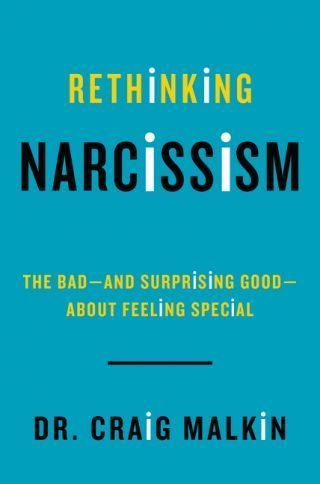
According to some interpretations of a new study they are. And if you take the advice of the headlines describing this research, you guys out there might be tempted to break out the camera and start scowling for your new profile pics. Don't be in such a hurry.
Professor Jessica Tracy of the University of British Columbia and her co-author Alec Beall, published the results of a fascinating study on the effects of smiling. They asked over a 1000 volunteers, across three different studies, to rate the "sexual attractiveness" of hundreds of images of men and women, displaying one of four different postures and expressions.
1) happy (smiling)
2) proud (with arms raised overhead)
3) ashamed (with eyes downcast)
4) neutral (staring straight ahead, expressionless)
The results? Men rated the "happy" women the highest (above five on a nine point scale). They rated "proud" women the lowest (on average two points lower). Women, in contrast, rated "proud" men the highest, with a rating between four and five, and "happy" men a point lower.
The authors themselves have expressed surprise at these results, and their preliminary interpretation is that, consistent with previous studies, smiling is seen as feminine and submissive, and therefore less attractive. Women prefer the strong, silent type; men the smiling, receptive type. (We have no way if knowing, unfortunately, if gays and lesbians would feel the same way-all the participants were heterosexual)
This study, though intriguing, has some major limitations that even the authors acknowledge. The first problem is how to extrapolate attractiveness ratings based on photos of strangers to real life relationships. This, by the way, is a common limitation of these kinds of studies. "Attractiveness," tends to be based on fleeting indicators instead of richer, more nuanced impressions that emerge over the course of hours or days (the typical incubation time for attraction to turn into something that matters). "It is important to remember that this study explored first-impressions of sexual attraction to images of the opposite sex," explained Alec Beall, a UBC psychology graduate student and study co-author. "We were not asking participants if they thought these targets would make a good boyfriend or wife - we wanted their gut reactions on carnal, sexual attraction."
But there's another, even larger problem. The photos, themselves, are now circulating on blogs and news sites, and some readers comments raise questions about whether the authors were always measuring what they thought they were measuring.
The smiles looked forced-a little jokerish. "The happy guy comes across as creepy," one person remarked. In fairness, even the creep factor might average out, if some of the men come off as less "serial killer" (a quote from another comment on the pictures), but one confounding variable can't be so easily dismissed. All the postures and expressions are fake, some of them quite exaggerated. And since humans, as it happens, are notoriously good at detecting false smiles, it's also possible the women were simply more turned off by simulated happiness. If that's the case, the findings say far more more about how straight men and women react to feigned emotions than they do about what men and women find sexy.
The photos used in this study were designed for research on emotional recognition, driven by questions like, does pride look the same across cultures? How about happiness? Or shame? The obviously posed stances probably help with ease of recognition. But a quick glance at the images is enough to see the "feelings" are mere caricatures of the original emotional display. If we saw them on facebook, let alone in real life, we'd be more than a little confused. (I, myself, rarely express pride by holding my arms up, finish-line style). Maybe women find fake smiles more off-putting than faux shame or pride. Even controlling for phoniness by asking people to rate the "genuineness" of the expression can't eliminate the problem. A picture is not a person.
Despite all these caveats, wild advice based on the theory that "happy guys are a turn-off" is already circulating all over the internet. One of my favorites: if you want to pick up a woman, don't smile.
Good luck with that.
In reality, decades of research show that men and women both find partners with a sense of humor more attractive. In 37 different countries and cultures around the world men and women rate a sense of humor high on the list of what they're looking for in a partner. In glaring contrast to the unhappy guys are sexy theory, good moods and laughter seem to actually bring men and women closer in real world interactions.
Go to any comedy club or funny movie and you're bound to see couples laughing and holding hands. What you're seeing is consistent with another line of research that shows a good mood enhances feelings of attraction (a bad mood tends to dampen them). Laughter is infectious. Humor is like an aphrodisiac. In the course of laughing and making each other laugh, we're bound to crack a smile. It's unlikely that being funny is a turn on and smiling isn't. Still, this hasn't stemmed the tidal wave of headlines like "brooding men are sexier."
So should men hold back all that genuine mirth? Should women hold back authentic pride?
Doubtful.
But if you're a guy, you might want think twice about posting that photo of yourself pretending to have a good time at the family reunion. And if you're a woman, you should probably skip that picture where you're proudly waving your arms over your head.
Want to read more? Check out www.drcraigmalkin.com
For more content, including exclusive tips and insights, follow Romance Redux on facebook and twitter.

Like what you read? Order Dr. Malkin’s book, Rethinking Narcissism, today.
“[Dr. Malkin’s] reassuring tone and plethora of case histories offer considered advice and generous encouragement.” Kirkus Reviews
“It’s bad to be a ‘narcissist,' right? Not necessarily. Dr. Craig Malkin offers a surprising, accessible analyis of narcissism-and explains why a healthy dash of narcissism can be a good thing.” Gretchen Rubin, bestselling author of Better Than Before and The Happiness Project
more advance praise from experts and critics
Follow me on Facebook and Twitter and sign up for my newsletter, for more tips and advice, as well as information on my book Rethinking Narcissism: The Bad—And Surprising Good—About Feeling Special, devoted to understanding and coping with narcissism in all its forms, in our friends, lovers, colleagues–and even ourselves. (Harperwave and Harper UK, July 2015.)




